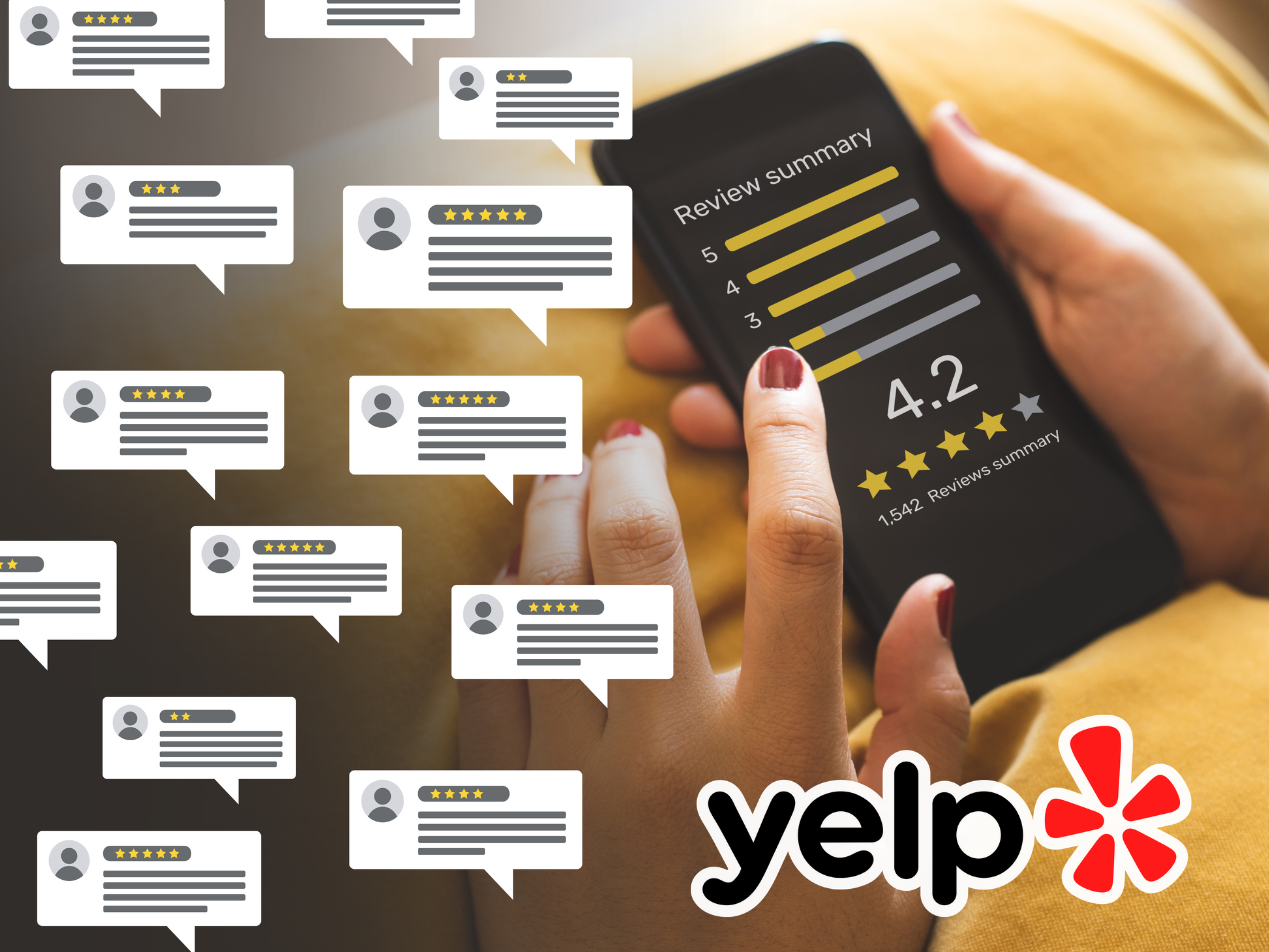4 min read
Is Yelp still relevant for physical therapists in 2024?
Tshedimoso Makhene
February 28, 2024

Searching and reviewing local businesses is easier with Yelp, an online directory and customer rating website for all types of businesses and services. However, its use by physical therapists may not adhere to HIPAA regulations.
Yelp is not HIPAA compliant because it will not sign a BAA; however, it can still be used if PHI is not transmitted.
What is Yelp?
Yelp is a popular online platform and mobile app that helps people discover and review local businesses, including restaurants, cafes, bars, shops, salons, and various services such as physical therapists, dentists, and more. It allows users to search for businesses in their area, read reviews and ratings from other users, view photos, and get information about hours of operation, location, contact details, and other relevant information.
Yelp also provides businesses a platform to create profiles, interact with customers through messaging and responding to reviews, and advertise their services through paid features. It has become a widely used tool for consumers to make informed decisions about where to spend their money and for businesses to manage their online reputation and attract new customers.
According to TechJury, 12% of US consumers use the platform regularly, putting the company in the 10th spot on the leading review-based networks. Yelp’s net revenue for the second quarter of 2023 was $337 million. Established in 2004, Yelp has delivered record-breaking figures for almost 20 years.
Yelp and business associate agreements (BAAs)
Any software or service that stores, processes, or transmits protected health information (PHI) on behalf of a healthcare entity is considered a business associate and should, therefore, sign a business associate agreement (BAA). Under the Health Insurance Portability and Accountability Act (HIPAA), a BAA outlines the responsibilities of third-party vendors that handle PHI.
Jeremy Stoppelman, Yelp founder, created the company when he found that the internet did not help answer the question, “How do you find a great doctor online?” Jeremy built the platform to make it possible for people to share and find reviews of doctors. This suggests that healthcare organizations, including physical therapists, can actively seek and maintain patients to have a successful business using Yelp. However, Yelp does not sign BAAs with healthcare providers because it is a consumer review platform and is not designed to handle PHI in compliance with HIPAA regulations.
Read more: What does it mean to be a business associate?
Ethical concerns about online reviews and Yelp
Beyond HIPAA, therapists should consider several ethical concerns before advocating for reviews on Yelp. Ethical concerns surrounding online reviews revolve around issues such as authenticity, bias, and manipulation:
- PHI: Clients' identities or relationships with the physical therapist may be unintentionally revealed through public reviews. Even minor details can sometimes lead to unintended consequences by disclosing personal information.
- Authenticity: There is a concern that some reviews may not be genuine and could be fabricated by businesses or competitors to artificially boost or diminish ratings. This lack of authenticity can mislead consumers and undermine the credibility of the review system.
- Bias and manipulation: Businesses may attempt to manipulate their Yelp ratings by incentivizing or soliciting positive reviews from customers, offering discounts or freebies in exchange for favorable feedback. Conversely, they may try to suppress negative reviews or engage in "review gating," where they discourage dissatisfied customers from leaving feedback. Such practices distort the accuracy of ratings and compromise the integrity of the platform.
- Lack of transparency: Yelp's algorithm for filtering and displaying reviews is not always transparent, leading to uncertainty about how reviews are selected and displayed. This lack of transparency can raise questions about fairness and accountability in the review process.
How can therapists use Yelp while being ethical and HIPAA compliant?
Physical therapists can use Yelp ethically and adhere to HIPAA by focusing on general aspects of their practice rather than specific patient information. Here are some ways they can utilize Yelp effectively:
- General practice information: Physical therapists can use Yelp to provide general information about their practice, such as services offered, expertise areas, office hours, location, and contact details. This information can help potential clients learn more about the practice without disclosing any patient-specific details.
- Educational content: Physical therapists can share educational content on their Yelp profile, such as blog posts, articles, or videos related to physical therapy techniques, injury prevention tips, or general wellness advice.
- Responding to reviews: Physical therapists should avoid discussing specific patient cases or providing personalized medical advice when responding to reviews on Yelp. Instead, they can express gratitude for positive feedback, address any concerns raised in negative reviews in general, and invite reviewers to contact the practice directly for further assistance if needed.
- Promoting privacy practices: Physical therapists can use their Yelp profile to highlight their commitment to patient privacy and confidentiality. They can provide information about their privacy policies and procedures, reassuring potential clients that their information will be handled securely and in compliance with HIPAA regulations.
- Encouraging reviews responsibly: While it's important to encourage satisfied clients to leave reviews on Yelp, physical therapists should do so in a manner that respects patient privacy. They should not incentivize or pressure patients to leave reviews, and they should avoid soliciting feedback about specific treatment experiences or outcomes that could reveal sensitive health information.
Related: What is the key to HIPAA compliance?
Is Yelp HIPAA compliant?
A major part of HIPAA compliance is ensuring a business associate will sign a BAA. However, Yelp’s lack of a BAA suggests that Yelp is not HIPAA compliant.
Using the site is still acceptable for therapists, but they need to ensure that any PHI transmission through the platform does not occur to comply with regulations.
Related: Understanding and implementing HIPAA rules
FAQs
How does Yelp work?
Users can search for businesses in their area, read reviews and ratings from other users, view photos, and get information about hours of operation, location, contact details, and other relevant details.
Can healthcare providers use Yelp to communicate with patients?
Healthcare providers should avoid using Yelp or similar platforms to communicate with patients about their health information or treatment. These platforms are not equipped to meet the stringent security and privacy standards required by HIPAA. Instead, healthcare providers should use HIPAA compliant methods of communication, such as encrypted email.
Learn more: HIPAA compliant email: The definitive guide
What should healthcare providers do if they receive a review on Yelp that mentions patient information?
If a review on Yelp contains patient-specific information, healthcare providers should refrain from responding publicly and should instead reach out to the reviewer privately to address the issue. It's important to handle patient information with care and always protect patient privacy.
Subscribe to Paubox Weekly
Every Friday we'll bring you the most important news from Paubox. Our aim is to make you smarter, faster.


